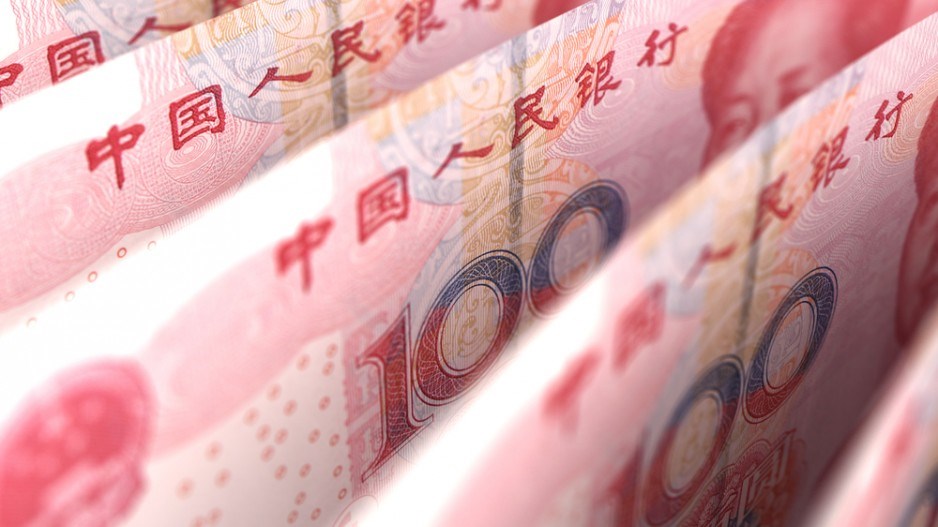China's surprise move to devalue its currency will likely mean more pain for the battered Canadian economy.
Stock markets in Canada and the United States fell sharply on the news that China had allowed the yuan to drop 2%.
The move to allow the yuan to depreciate against the U.S. dollar sent Canada’s dollar lower, to 76.08 cents U.S. as of time of writing.
China made the unexpected decision for two reasons, said Sherry Cooper, chief economist at Dominion Lending Centres: to attempt to breath life into China’s slowing economy and to position the country to be a reserve currency. To achieve that latter goal, China needs to lessen its iron control over its currency.
China has been dealing with a series of disappointing economic reports, the latest being export numbers, and concerns about deflation.
The yuan may fall further, said CIBC economists Avery Shenfeld and Nick Exarhos in a note.
“Also announced was a change in policy that would tie the daily fixing to how the spot market traded in the prior day,” they wrote. “Since the spot has recently been trading about 11⁄2% weaker against the dollar than the fixing, we could see the latter ratcheting to weaker levels against the dollar if the market trades in that direction.
“So while PBOC [People's Bank of China] spokesmen have described this as a 'one- off' adjustment, the change in the fixing mechanism leaves the door open for traders to push the yuan weaker.”
The unexpected decision will be a negative for Canada’s commodity-dependent economy, said Cooper.
“This means demand for pretty much everything that’s imported into China is likely to slow,” she said, “which is why commodity prices have fallen once again and most importantly for Canada, oil prices are down.”
While British Columbia is not an oil-producing province, its mining sector, especially metallurgical coal, has already been hit hard by declining demand from China. This summer, the price of gold fell to a level that does not cover the cost of production, prompting companies like Goldcorp to sell off assets and reduce its dividend to shareholders.
Reduced shipments through the Port of Vancouver could also be a negative for the province’s economy, Cooper said.
On the upside, Canada’s largest export market, the United States, has seen positive economic growth lately. But a substantial lift in Canadian exports from a low dollar hasn’t yet occurred, partly because Canada’s manufacturing sector, especially Ontario-based auto manufacturing, declined over a period when the Canadian dollar was high and companies were locating plants in countries with lower labour costs.
A lower Chinese yuan could boost Chinese exports, noted Shenfeld and Exarhos. But they predicted that China’s slowed economy will need further measures, such as an interest rate cut, to “engineer a soft landing for China’s economy.”
@jenstden




